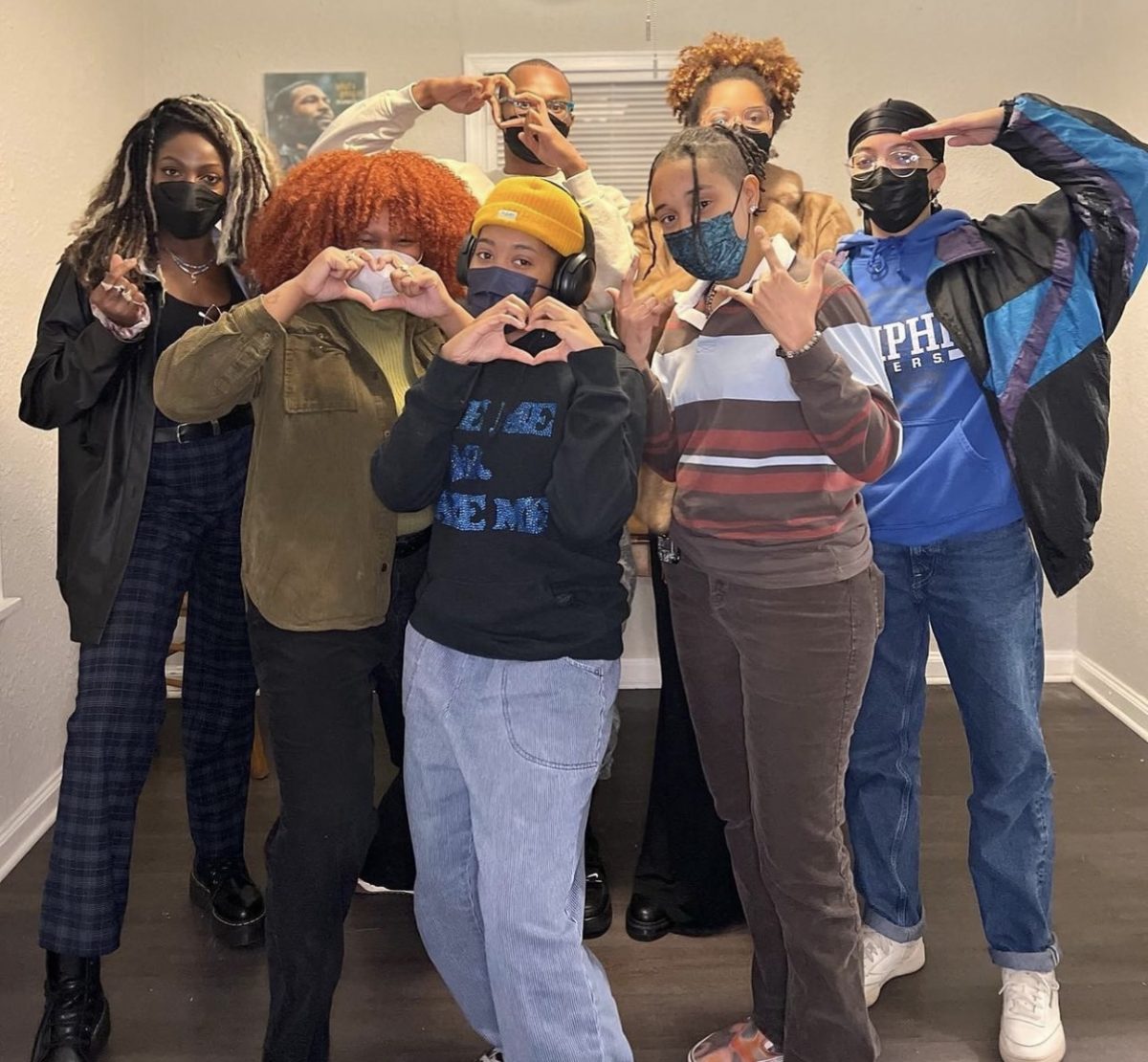Jordan Dodson, August Brown, and Sabrina Lucas are the founders of Barter Up, a Memphis-based mutual aid collective. While the organization has only been around since January of 2023, their Discord server has amassed a following of 3,011 members and their TikTok page has more than 150,000 likes and 44,900 followers.
“Regardless of what social media we’re using or regardless of our tactics that we’re using, you know people believe in what we believe in also,” said Brown. “Through TikTok we’ve been able to grow a community a little bit, and through Discord we’ve kind of been able to get people connecting with each other. Being able to speak on what we feel is right, and what we believe and have other people agree with that has been going such a long way.”
The main goal of Barter Up is to be a mutual aid collaborative among people in Memphis. The organization hosts monthly events where vendors and artists can barter their goods and services. The events require an RSVP, and the location is only disclosed to those registered for the event.
In the past few months Barter Up has hosted donation drives and marketplaces with non-perishable items serving as a ticket to entry.
“We’re trying to create a community where money isn’t an issue, and where money isn’t the main form of currency,” said Brown. “They have the opportunity to feel like they themselves matter more than what they’re bringing.
Dodson explained that when they came together to found Barter Up at the beginning of the year, they recognized the need stemming from the three of them being creatives and realizing that the things that they needed were things such as studio spaces, equipment, or food.
“Food is a tangible good that people could trade in exchange for providing that need,” said Dodson. “All of us believe in this idea of an anti-capitalist world. Our worth isn’t dependent on money, it’s dependent on what we can give back to the world.”
According to Lucas, they want to be a safe space for marginalized and disabled people.
In the early days of the COVID-19 pandemic, the trio saw an “uprising” and an “uproar,” and they saw people being activated from their phones and social media.Through this, they saw that activism does not have to be showing up in a physical space, but showing up where you are.
“Whether that’s boosting mutual aid funds, whether that’s getting people to these events, accessibility doesn’t have to be in person, it could also be online.”
They also explained that COVID is a mass-disabling event, and they’re able to provide accessibility through their social media accounts. Dodson explained that this is how they advocate for everyone.
“For the longest time, in every single space, people don’t center disabled voices,” said Dodson. “With COVID being a mass-disabling event, more people are disabled in the world than we realize, and more people have abilities in other ways. Whether it’s neurodivergency or autism, they’re still able to bring what they can and be a part of this experience. In a capitalist world we center able-bodies and able-voices over disabled voices. We’re trying to be the change that we want to see by reaching people within our communities. It can be in Memphis, but it can also be around the world.”
Lucas said that while they did not have a background in activism per se, they felt like people have different definitions of it. However, for Lucas activism is using your voice and talents to serve the community around you. Brown added that Barter Up is a perfect example of the different types of activism that they’re able to do in Memphis, especially when there isn’t something “right in front of their faces.”
“With Barter Up, it started with little acts of services, and we’ve been able to grow into such a huge thing,” said Brown. “I think Barter Up is a really good idea of how activism can be used in different ways.”


















